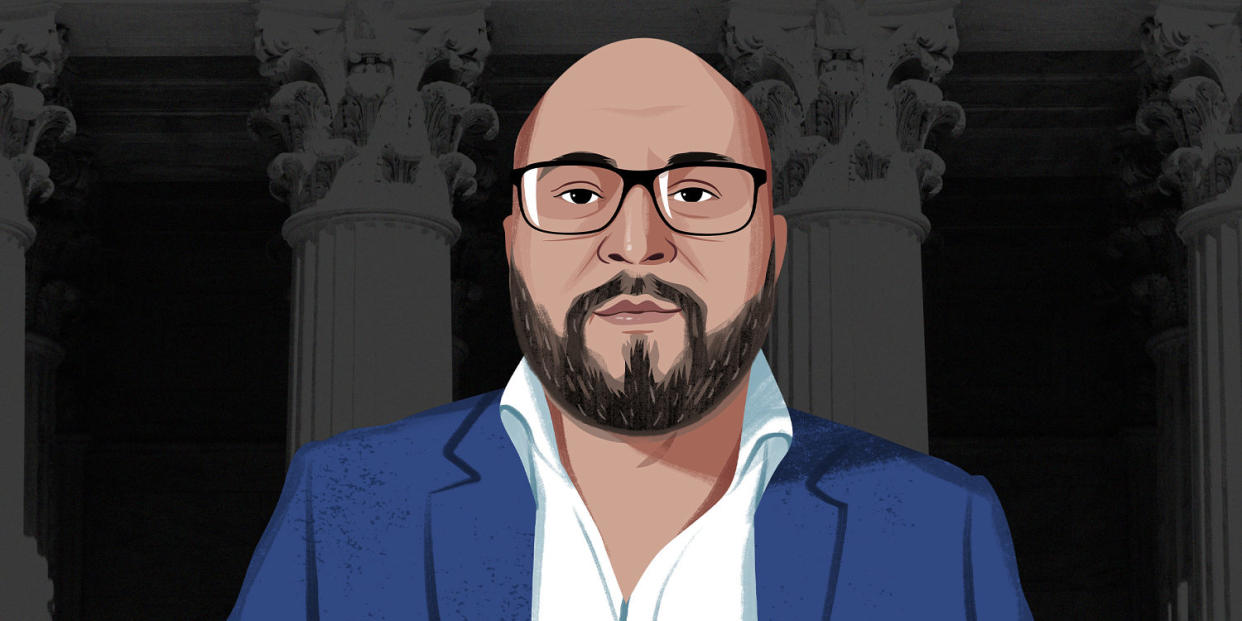Ask Jordan: Is Trump really above the law?

- Oops!Something went wrong.Please try again later.
“If Donald Trump retakes the White House, it is said that he can effectively direct the Department of Justice to quash the two federal cases against him. We often hear that the U.S. subscribes to the theory that ‘no one is above the law,’ but doesn’t this kind of power suggest otherwise?”
— Stephen Henry, Calgary, Alberta, Canada
Hi Stephen,
Yes, it does.
The law should be a great equalizer. But when it comes to the presidency, that’s not even true in theory.
Before getting to the brazen possibility you reference, let’s look at the Justice Department’s policy of not prosecuting sitting presidents. If not being above the law means being treated like everyone else, it places presidents above the law (at least temporarily).
To be clear, this isn’t a Trump-specific policy. Had special counsel Robert Hur found that President Joe Biden committed classified documents-related crimes, then Biden would’ve benefited from that same policy (also temporarily). If Trump wins in November, this policy could again protect him, like it did in the Robert Mueller probe when he was president. However, whether it should apply to someone already charged before coming into office is debatable. If Trump wins, we’ll revisit the subject, but it’s a moot point if he kills the cases.
In a 2000 memorandum on the non-prosecution policy, the Justice Department recognized the “above the law” maxim you cite. But among its defenses was that presidents could be prosecuted after they leave office. Yet, the extent of that possibility is in flux, pending the Supreme Court’s immunity decision in Trump v. United States. That appeal comes in the federal election interference case, one of the two prosecutions that Trump would likely quash if he wins. If he did so, that would at least violate the spirit of the concept that no one is above the law. It would be more like an affirmation that the president is the law.
The same goes for self-pardoning, which Trump has said he had the "absolute right" to do as president. The subject arose during the Supreme Court immunity hearing, where Trump appointee Neil Gorsuch noted that the legality of such pardons is unsettled. “Happily, it’s never been presented to us,” Gorsuch said of the unprecedented issue.
And that’s what the Trump era has shown: There aren’t as many guardrails in the system as one might think or hope. That point arose inadvertently when another justice, Samuel Alito, followed up on the self-pardon issue at the immunity hearing. Alito, whose ability to impartially judge Jan. 6-related cases has since been questioned, pressed the special counsel’s lawyer about the government’s position on self-pardons.
The lawyer, legendary DOJ attorney Michael Dreeben, said that the department hadn’t taken a position that he knew of, aside from a memo saying there’s no such authority. But Alito said it’s important to know because if presidents have no immunity, then that could normalize self-pardons at the end of a president’s term. Dreeben responded skeptically, explaining (perhaps to Alito’s discomfort) that Trump is not normal:
So there we have it. Whether such a dystopian regime evolves will depend at least partly on our political choices as a country. That realization, in turn, emphasizes that Trump’s legal fate across the board and the degree to which our system is tested essentially come down to November’s election.
Have any questions or comments for me? I’d love to hear from you! Please email deadlinelegal@nbcuni.com for a chance to be featured in a future post.
This article was originally published on MSNBC.com

